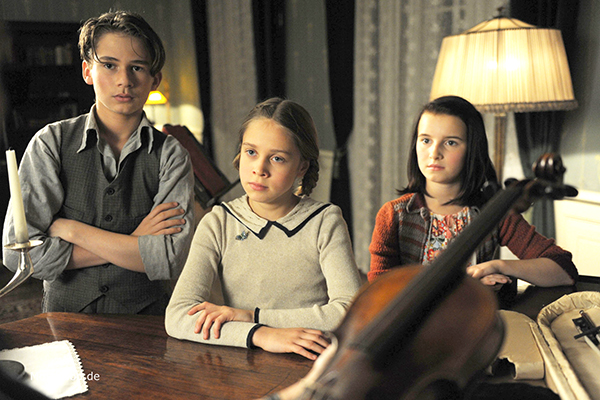Wunderkinder
Director: Marcus Rosenmulle
As Germany advances on Russia, it is Hanna’s family that is initially forced into hiding, but as the Germans fend off Russian forces the tables are turned and it is the Jewish children who must hide. A “return the favour” scenario occurs in which each family assists the others. The brutality of wartime results in a heart-wrenching twist that tests the Reich family’s loyalty to their beloved Germany.
Although the film shies away from explicit depictions of brutality, the harshness of the Nazi treatment of the Jews is still difficult to comprehend. A child-like understanding of the Nazi-Jewish relationship is represented by Abrascha’s claims that he and Larissa cannot be friends with Hanna anymore, “because adults are stupid”.
The film is beautifully shot, and Ukraine is utterly picturesque. The film is subtitled, and although it took me a couple of scenes to acclimatise to the flow of German speech, it would have been a very different film had it been in English. However, Wunderkinder does lack the beautifully rendered childhood sincerity and naïveté that Boy in the Striped Pajamas so delicately mastered.
The musical abilities of the children add a texture to the film which at times can be chilling. While the story is told in a measured way, the suspense is at times uncomfortable, particularly as the viewer knows enough of the Holocaust story to appreciate that the film isn’t going to end well.
4 / 5 stars






